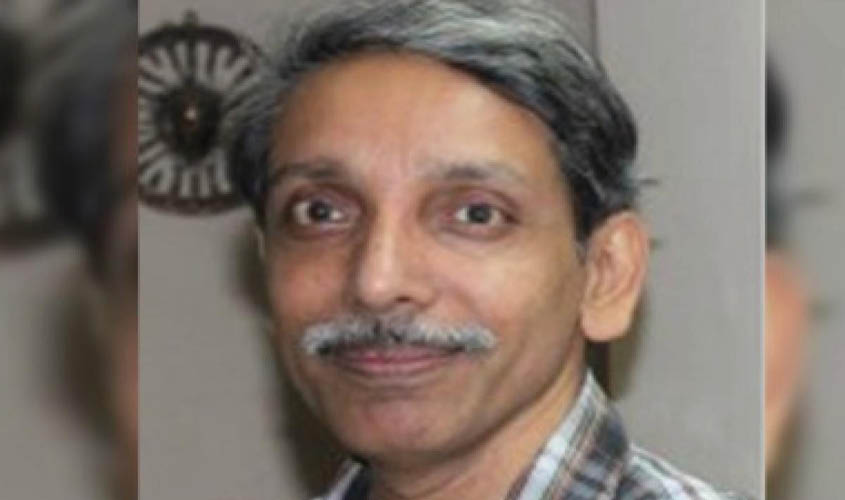NEW DELHI: The ongoing agitation at the Jawaharlal Nehru University (JNU) is “unwarranted”, “undemocratic” and even “unlawful”, says Vice-Chancellor M. Jagadesh Kumar. There is, after all, “mechanism within the university to discuss and resolve” the issue. “If there’s any hostel issue, then students can discuss with wardens. If that is not resolved at that level, they can take up the matter with proctors, associate deans, deans, rectors and finally the Vice-Chancellor,” he explains.
The agitation started with the new hostel manual, which, Kumar says, was widely discussed and debated in the university forums. “The whole process of revising the new hostel manual started in 2016. It was not a sudden thing. A committee was formed by the Vice-Chancellor’s office consisting of student representatives, wardens, associate deans and deans. When the draft hostel manual was prepared, it was put up on the JNU website for a month for suggestions and feedback,” says the Vice-Chancellor, adding that suggestions and feedbacks were taken into consideration.
To validate this point, Kumar recalls how the Executive Council meeting on 13 November did away with “curfew timings” in JNU hostels. “When we came to know through social media and other places that there are some restrictions on timings of reaching back to hostels, we decided to do away with it. The rule didn’t make any sense when our labs and central library are open 24×7. Apparently, there was another line in the draft hostel manual that asked students to come to the dining hall appropriately dressed. We did away with this provision too,” he says.
Coming to the issue of the hike in hostel charges, Kumar says that the room rent in JNU—Rs 10 per month for a double-seater and Rs 20 for a single seater—was fixed 40 years ago. “There has been no revision since then. The Executive Council, therefore, decided to go ahead with the committee’s recommendations to revise the charges for a double-seater room to Rs 300, and a single-seater to Rs 600.”
On the issue of service and utility charges that include electricity and water expenditures as well as salary for the mess staff, Kumar emphasises that in other universities these charges are paid by students themselves. Busting the myth that after the hike JNU would become India’s most expensive Central university, as certain media reports have suggested, the V-C says, “If you look at the University of Delhi, the annual hostel fee can be as high as Rs 55,000. In JNU, the monthly revised hostel charges come out to be Rs 4,500 only. Of this, food charges alone account for Rs 2,300. Even if we take Rs 4,500, the total annual fee comes around Rs 50,000. Other universities, such as Jamia Millia, have less hostel fee, but what about the tuition fee? These universities subsidise hostel stay by charging higher tuition fee, something we cannot do. JNU’s annual tuition fee is just Rs 300.”
With each student paying Rs 300 as tuition fee, JNU collects about Rs 1.9 crore annually. Interestingly, every year the university disburses Rs 3.6 crore to its students through the MCM (Merit-cum-Means) Scholarship. “Most BA and MA students get this scholarship,” says Kumar. He also points out how major universities in the country charge tuition fee to the extent of Rs 10,000 per annum. “By charging so much as tuition fee, they can subsidise other expenses. For meeting the shortfall, we in JNU have to either ask UGC or students for help. Since UGC has already told us to meet the university’s expenses with its internal receipts, the only option left for us is to revise hostel fee.”
The JNU V-C also believes that the move to hike the service and utility charges would encourage students to save electricity and water. “There were cases in the past when students would go on long vacations without switching off their heaters and fans,” he says. Talking about his own humble background when he just had two outfits and a pair of slippers during his college days, he promises to keep JNU accessible to one and all. “I know the university attracts students from across the country and particularly from economically poorer sections. Therefore, the Executive Council has decided to give poor students 50% concession on room rent as well as utility and service charges. This is apart from the scholarships we give to our students.”
A document accessed by The Sunday Guardian reveals that of 6,000 students who stay in JNU hostels, 5,371 get scholarships: 674 students get scholarships of Rs 31,000 to Rs 47,000; 182 students with a scholarship of Rs 12,000 to Rs 22,000; 3,080 students with a scholarship of Rs 5,000 to Rs 8,000; and 1,435 students with a scholarship of Rs 2,000 to Rs 3,500. “So, it’s not that they can’t pay. And those who cannot, we are ready to provide them with 50% concession,” says Kumar.
The Vice-Chancellor also finds the agitation “undemocratic” and “unlawful” because it was carried out in a “very militant and violent” manner. He accuses the agitating students of gheraoing and holding people under pressure. “The protesting students have not just disrupted discussions on hostel hike and held hostage JNU functionaries, including the dean, but were also found switching off electricity and water supplies to the residences of university officials. For the past 18 days or so, they have forcibly occupied our administrative block and have not allowed us to enter the building. They have resorted to vandalism by damaging cameras and even desecrated the yet-to-be unveiled Vivekananda statue. This is not the way to conduct an agitation. It’s both undemocratic and unlawful.”
While giving his assurance that there are “structures within the university to address any genuine grievances”, Kumar invites the agitating students to the negotiating table. “The ongoing agitation is not only defaming the great institution, but also harming the interest of a large number of students hailing from ordinary families,” he says unequivocally.

